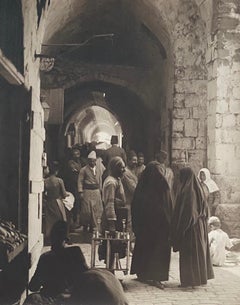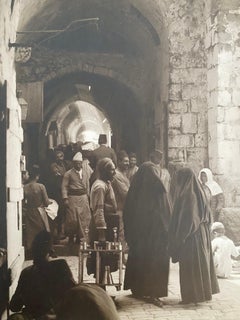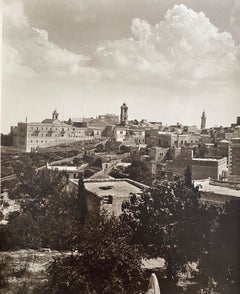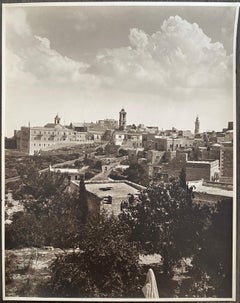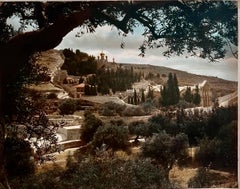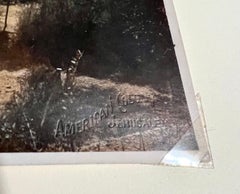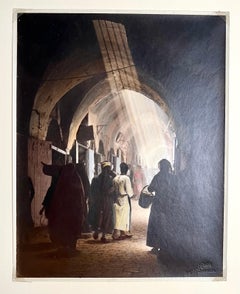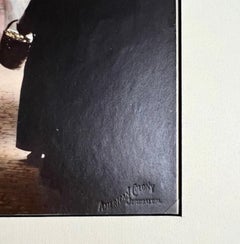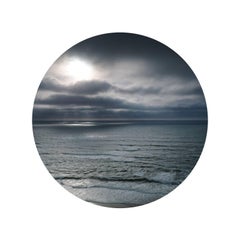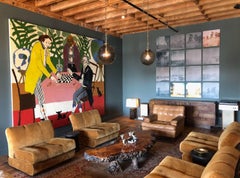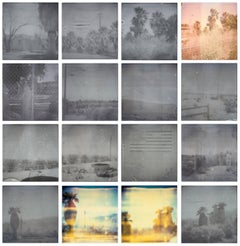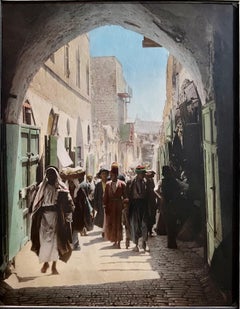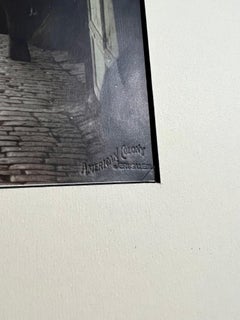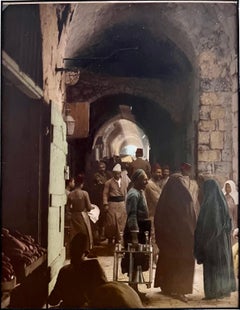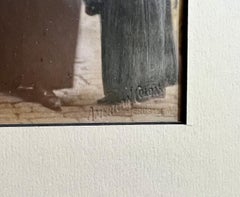Vintage Large Albumen Photo - Via Dolorosa In Station Of The Bross. Jerusalem
By American Colony Jerusalem
Located in Surfside, FL
The Original American Colony was a colony established in Jerusalem in 1881 by members of a utopian society led by Anna and Horatio Spafford. Now a hotel in East Jerusalem, it is still known by that name today. After suffering a series tragic losses following the Great Chicago Fire of 1871 (see hymn "It is Well with My Soul"), Chicago residents Anna and Horatio Spafford led a small American contingent in 1881 to Jerusalem to form a utopian society. The "American Colony," as it became known, was later joined by Swedish Christians. The society engaged in philanthropic work amongst the people of Jerusalem regardless of religious affiliation, gaining the trust of the local Muslim, Jewish, and Christian communities.During and immediately after World War I, the American Colony carried out philanthropic work to alleviate the suffering of the local inhabitants, opening soup kitchens, hospitals, orphanages and other charitable ventures. Towards the end of the 1950s, the society's communal residence was converted into the American Colony Hotel. The hotel is an integral part of the Jerusalem landscape where members of all communities in Jerusalem still meet. In 1992 representatives from the Palestine Liberation Organization and Israel met in the hotel where they began talks that led to the historic 1993 Oslo Peace Accord. Panorama of Jerusalem, c. 1890-1920 The Colony moved to the large house of a wealthy Arab landowner, Rabbah Husseini, outside the city walls in Sheikh Jarrah on the road to Nablus. Part of the building was used as a hostel for visitors from Europe and America. A small farm developed with animals, a butchery, a dairy, a bakery, a carpenter's shop, and a smithy. The economy was supplemented by a shop selling photographs, craft items and archaeological artifacts. The American Colonists were embraced by the Jewish and Palestinian communities for their good works, among them, teaching in both Muslim and Jewish schools. Photography Around 1900, Elijah Meyers, a member of the American Colony, began taking photographs of places and events in and around the city of Jerusalem. Meyers's work eventually expanded into a full-fledged photographic division within the Colony, including Hol Lars (Lewis) Larsson and G. Eric Matson, who later renamed the effort as the Matson Photographic Service. Their interest in archeological artifacts (such as the Lion Tower in Tripoli pictured here), and the detail of their photographs, led to widespread interest in their work by archeologists. The collection was later donated to the Library of Congress. World War I When the Ottoman Empire entered World War I as an ally of Germany in November 1914, Jerusalem and Palestine became a battleground between the Allied and the Central powers...
Late 19th Century Academic American Colony Jerusalem Art
Photographic Paper
